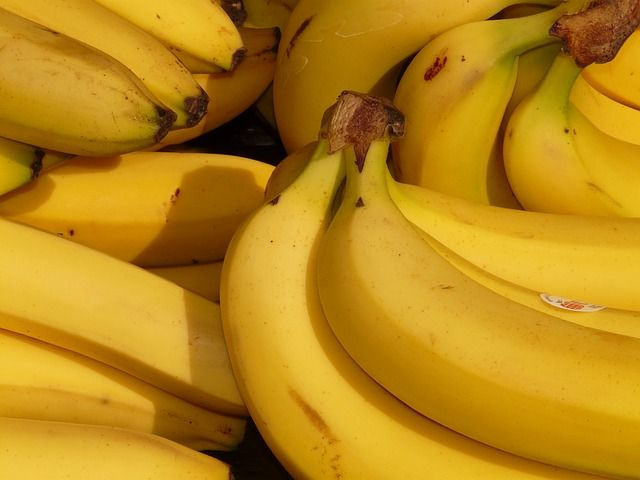Fruits And Vegetables Could Be The Key To Lower Blood Pressure, Regardless Of Your Salt Intake

Need another reason to eat your fruits and veggies? New research has found that these powerful foods don’t just help your waistline, they could also lower blood pressure. The study found that eating potassium-rich foods, like sweet potatoes, avocados, spinach, beans, and bananas — in addition to decreasing salt intake — could help lower blood pressure.
The study, now published online in the American Journal of Physiology - Endocrinology and Metabolism, found that eating potassium-rich foods, such as a number of fruits and vegetables, may be key to lowering high blood pressure. This result persisted, no matter how much salt patients consumed.
Read: 6 Ways To Lower Blood Pressure Naturally Without Medication, From Losing Weight To Sleeping Better
For the research, the team looked at several studies that analyzed subjects' potassium intake, as measured by the amount found in their urine or from their recollection of what they ate. The researchers then looked at how potassium intake affected other factors, such as blood pressure, and sodium intake. The team also looked at rodent models to examine the effect of potassium on blood pressure. Results revealed that higher potassium intake was associated with lower blood pressure, regardless of sodium. The team believe that potassium’s effect on blood pressure may be due to our body constantly trying to keep an equilibrium between salt and potassium.
"When dietary potassium is high, kidneys excrete more salt and water, which increases potassium excretion," study author Alicia McDonough said in a recent statement. "Eating a high potassium diet is like taking a diuretic."
In addition to adding more potassium-rich fruits and vegetables to your diet, there are a number of other ways to naturally lower blood pressure. For example, according to the Mayo Clinic, maintaining a healthy weight is important to blood pressure control, and losing just 10 pounds can help you to reduce your blood pressure. In addition, according to the American Heart Association, controlling stress is also an effective way to prevent high blood pressure. This can be accomplished through stress-controlling behavior, such as meditation, or simply by sleeping better and not overworking.
Source: McDonough AA, Veiras LC, Guevara CA, et al. Cardiovascular benefits associated with higher dietary K+ vs. lower dietary Na+: evidence from population and mechanistic studies. American Journal of Physiology . 2017
See Also:
Can Hypertension Be Treated? Researchers Find Potential New Way Of Treating High Blood Pressure
Intensive Treatment For High Blood Pressure Protects Elderly People From Heart Attack, Stroke



























